
Anti-inflammatory agents, such as aspirin, ibuprofen, statins, and antibiotics, can safely and effectively curb the symptoms of major depression, finds a pooled analysis of the available evidence, published online on October 28, 2019, in the Journal of Neurology Neurosurgery & Psychiatry.
And the effects are even stronger when these agents are added on to standard antidepressant treatment, the results show.
Around a third of people who are clinically depressed don’t respond well to the current drug and talking therapies, and drug side effects are relatively common.
An emerging body of evidence suggests that inflammation contributes to the development of major depression, but the results of clinical trials using various anti-inflammatory agents to treat the condition have proved inconclusive.
The researchers therefore set out to review the available evidence and pool the data to see if anti-inflammatory agents work better than dummy (placebo) treatment either alone or when used as add-on therapy to standard antidepressant treatment.
Anti-inflammatory agents included: non-steroidal anti-inflammatory drugs (NSAIDs); omega 3 fatty acids; drugs that curb the production of inflammatory chemicals (cytokine inhibitors); statins; steroids; antibiotics (minocyclines); a drug used to treat sleep disorders (modafinil); and N-acetyl cysteine, known as NAC, and used to loosen the excess phlegm of cystic fibrosis and COPD and also taken as an antioxidant supplement.
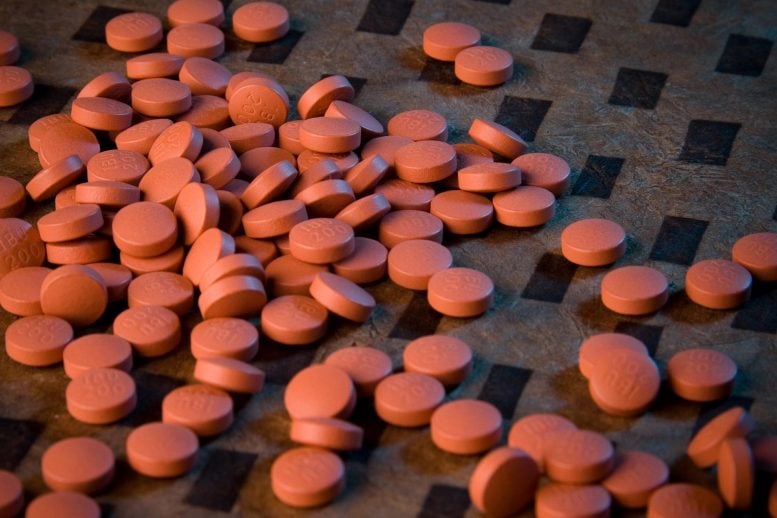
Nonsteroidal anti-inflammatory drugs (NSAIDs) are a class of prescription and over-the-counter (OTC) drugs that reduce pain, decrease fever, and decrease inflammation. Ibuprofen (pictured here) and naproxen are common OTC NSAIDs. Advil and Motrin are common brands of ibuprofen and Aleve is a common brand of naproxen available without a prescription.
The researchers trawled research databases to find suitable studies published up to January 2019. They found 30 relevant randomized controlled trials, involving 1610 people, which reported changes in depression scales. They pooled the data from 26 of these studies.
The pooled data analysis suggested that anti-inflammatory agents were better than placebo and enhanced the effects of standard antidepressant treatment.
These agents were 52% more effective in reducing symptom severity, overall, and 79% more effective in eliminating symptoms than placebo, as measured by an average fall in depression scales of 55.
More detailed analysis indicated that NSAIDs, omega 3 fatty acids, statins, and minocyclines were the most effective at reducing major depressive symptoms compared with placebo.
“The results of this systematic review suggest that anti-inflammatory agents play an antidepressant role in patients with major depressive disorder and are reasonably safe.” — Researchers Conclusion
And the effects were even greater when one or other of these agents was added to standard antidepressant treatment.
But anti-inflammatory agents didn’t seem to improve quality of life, although this might have been because of the small number of studies which looked at this aspect, say the researchers.
No major side effects were evident, although there were some gut symptoms among those taking statins and NACs, and the trials lasted only 4 to 12 weeks, so it wasn’t possible to track side effects over the longer term.
The researchers also point out that not all studies tracked changes in depression scores over the entire study period. The depression scales used in the studies differed, and those involving statins and minocyclines included only small numbers of patients.
Nevertheless, they conclude: “The results of this systematic review suggest that anti-inflammatory agents play an antidepressant role in patients with major depressive disorder and are reasonably safe.”
Reference: “Efficacy and safety of anti-inflammatory agents for the treatment of major depressive disorder: a systematic review and meta-analysis of randomised controlled trials” by Shuang Bai, Wenliang Guo, Yangyang Feng, Hong Deng, Gaigai Li, Hao Nie, Guangyu Guo, Haihan Yu, Yang Ma, Jiahui Wang, Shiling Chen, Jie Jing, Jingfei Yang, Yingxin Tang and Zhouping Tang, 28 October 2019, Journal of Neurology Neurosurgery & Psychiatry.
DOI: 10.1136/jnnp-2019-320912
Update 10/29/19: Tylenol / acetaminophen references in the title and article have been replaced with Advil / ibuprofen.

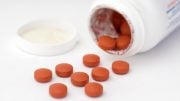

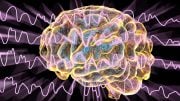
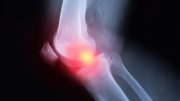


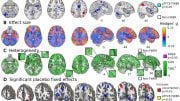

I have been taking aspirin, tylenol,& fish oil for at least 25 years.I also take blood press meds, liptor.& a multivitamin & calcium. I have been on liptor for yrs.I am 65 years old.
Tylenol is not an anti-inflammatory. It’s only an anti pyretic and analgesic. Tsk. Tsk.
As NaNa said, Tylenol (acetaminophen or paracetamol) is not anti-inflammatory. NSAIDs include ibuprofen, naproxen, and aspirin. You should talk to your doctor before adding any medicines to your treatment regimen, especially since NSAIDs can cause stomach problems over time and increase bleeding risk.
Thank you both. The article has been updated.
I have been using this combination for the the last 20 years. Not new news for me. Works like a charm.
I keep reading ibuprofen can’t be taken long term. I take fish oil all the time, a high dose, and it removes my fibromyalgia pain away completely and makes my memory phenomenally sharp. However, it doesn’t remove my depression.
Only ibuprofen removes my depression completely. I’ll give myself two weeks of it every couple of months when I get to the point of 2 hours nightly sleep, and after about three days, I have no more chronic constipation, no more dibilitating isomnia and the depression is completely gone. I am focused, can accomplish things instead of run on a gerbil wheel, and talk to people on the phone. It is a complete cure for me. But then, supposedly, people can get a perforated bowel and heart disease from chronic use of ibuprofen.
After a surgery once, I had to be on ibuprofen for a month because I refuse oxy and I’m allergic to Tylenol (acetaminophen). That’s the longest I’ve been on it. Even though I had to stay mostly sedentary to heal, I lost over 30 pounds that stayed off for months before it started to slowly creep up. I stop and do a week of advil and the weight holds for about 6 weeks before it creeps up again.
I so wish I could take ibuprofen everyday. Or at least if I could have more days of being alive and less day struggling.
Just to add, I’ve had major depression for 40 years. I stopped seeing doctors about 15 years ago because almost everything they give me for depression actually makes me worse. In winters, I can’t come out of my room because my depression doubles. My brother has schizophrenia and my sister is bi-polar, and, ironically, I feel I’m the luckiest of us all.
We were all skinny until about 25-26 when we developed memory issues and weird things like that, plus quick weight gain and awful fatigue. Then our brains went separate directions. We all had abusive childhoods.
I’ve tried probably every drug, and every alternative remedy that exists, herbs and vitamins. I’m allergic to curcumin, otherwise that might help too. But, basically, if anything every helped, it only very mildly made a different. Most things that made a different also had a tolerance threshold that made them temporary.
Ibuprofen is my life saver. I can be an actual person at the holidays because I make holidays my ibuprofen week.